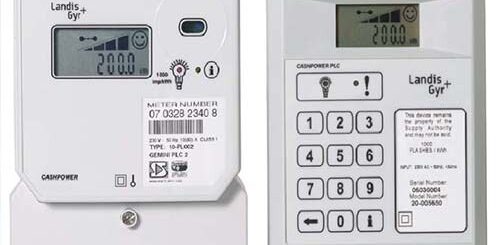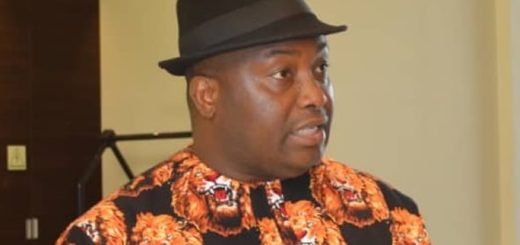‘Reform Bills will streamline taxes’
 The House of Representatives yesterday formally began an interactive session on tax reform bills with Presidential Committee on Fiscal Policy and Tax Reforms Chairman Taiwo Oyedele revealing that critical stakeholders, including governors, were consulted.
The House of Representatives yesterday formally began an interactive session on tax reform bills with Presidential Committee on Fiscal Policy and Tax Reforms Chairman Taiwo Oyedele revealing that critical stakeholders, including governors, were consulted.
Oyedele, who also restated that there were no plans to increase personal income tax, explained that the idea of increasing Value-Added Tax (VAT) derivation was not to give state(s) an advantage.
Speaker Abbas Tajudeen, his deputy Benjamin Kalu, Chairman on Downstream Petroleum, Ado Doguwa and Chairman of the Federal Inland Revenue Service (FIRS) Zack Adedeji also spoke on the bills.
President Bola Ahmed Tinubu had in a letter to the National Assembly dated September 3, 2024, transmitted four Executive bills on tax reforms to the National Assembly for consideration and passage
The bills are Nigeria Tax Bill 2024, which is expected to provide the fiscal framework for taxation in the country; Tax Administration Bill designed to provide a clear and concise legal framework for all taxes in the country and reduce disputes; the Nigeria Revenue Service Establishment Bill, which will repeal the Federal Inland Revenue Service Act and establish the Nigeria Revenue Service, and Joint Revenue Board Establishment Bill, which will create a tax tribunal and a tax ombudsman.
However, governors demanded the withdrawal of the bills after a meeting of the National Economic Council(NEC). They cited the need for more consultation and public input. North’s leaders however expressed opposition to the derivation principle in the sharing of VAT revenue contained in the Nigeria Tax Bill.
But the Presidency rejected the proposal by governors, insisting that the bills be allowed to go through the process of legislation. It advised that whatever input has to be made could still be done during the consideration of the bills by the National Assembly.
During the hearing titled ‘’People’s House Interactive Session on Tax Reform Bills,’ Oyedele dismissed fears that the bills were drafted to undermine a part of the country.
Stressing that the Presidential Committee interfaced with all shades of Nigerians, he added that the committee received submissions from the 36 states of the Federation and the Federal Capital Territory (FCT).
Speaking specifically on payment and sharing of VAT resources, the committee chairman, said currently, under Section 40 of the current VAT Act law, VAT revenue is allocated 15 percent to the Federal Government, 50 percent to states and FCT, and 35 percent to Local Government Areas.
He said “The current law for example requires that MTN makes its VAT return from its head office in Lagos. But what we are proposing is that such a return should be made based on the location where the calls were made. That will allow smooth computation of the derivation. “
Oyedele said further that states’ belief that VAT should be collected by them explains why states like Lagos and Rivers enacted their VAT laws. He argued that VAT policy cannot work well if states were allowed to collect VAT. ‘’
Oyedele said currently, Nigeria has eight sources of tax revenue which include “Personal Income Tax, property tax, stamp duties, VAT and land.
‘’These five,’’ according to him, are mostly being collected by states while the remaining three– corporate income tax, customs duties, and petroleum and solid minerals revenue— are shared among federal, state, and local governments.
Oyedele said the sad thing was that “ every single one of these eight is significantly underperforming, while the good news is that every single one of those eight is yet an opportunity to change the narrative.”
He expressed regret that the country cannot raise enough money to finance its small budget despite its size.
His words: “Our budget is small. What is even smaller is our revenue. The entire revenue that was generated in 2023 was about N17.5 trillion which is less than $20 billion. What that means is that our small budget is financed by borrowing because we cannot even raise enough money to finance a small budget.
“The truth is that the 36 states and FCT collected N1.6 trillion as personal income tax in 2023, while South Africa collected about 50.5 trillion naira equivalent of personal income tax that same year. What South Africa collected as personal income tax in one year alone is more than our entire revenue multiplied by two.
“Even Kenya which is a small country compared to Nigeria generated 5.8 trillion naira in personal income tax alone, which is almost four times what Nigeria collected, yet our population is four times the size of their population.
“In 2023, Nigeria collected N3.2 trillion from Customs. In that same year, Kenya collected 8.9 trillion naira. If you look at the value of what we import and what Kenya imported, they imported $23 billion worth of goods, while Nigeria imported $66 billion.
“We imported almost three times what Kenya imported and collected one-third of what Kenya collected. Something is not adding up and we must fix those problems if we must move forward as a country.
“The tax system lacks proper structure. We have obsolete laws which we are still amending. We have laws, but we are not respecting the laws.
“We have about 60 official tax laws which we have approved in Nigeria as a country. What other countries have approved is less than 10.
‘’The solution to our problems can never be to keep introducing new taxes. Rather, it is to get rid of the multiple taxes and maximise collection. As high as the number is, the unofficial ones are even more.
“First, we want to do away with those taxes that yield low income because they place a lot of burden on poor people and small businesses. ‘’Secondly, is to focus on high revenue yielding taxes that are broad-based and easy to collect.
‘’We want a situation where we are able to institutionalise these reforms so that it will be difficult for anybody to undo them.”
The tax reforms, he said ‘’is also to ensure simplicity to ensure global best practice. The Nigeria Tax Bill is trying to help us bring all our tax laws into one book so that we can just go to the tax law and find the taxes we need to pay
“The way the law is made today, you are making the companies pay tax on their capital and that is the fastest way to kill a business.
“We proposed that there should be an income from where you get capital gain tax. This will address the abuse of the tax regime. It will also reduce company income tax from 30 to 25 percent
“We also have a proposal to collapse all taxes into one single tax called development levy from where the money will now be distributed to the other agencies that we feel need that revenue. We feel that over time, all agencies of government should be funded from the budget. We don’t think any agency should be collecting their taxes and running their government.
“The current system of VAT imposes a tax on basic consumption. A lot of the food you buy in Nigeria today has hidden VAT. We are proposing a 0 VAT on food. 82 percent of the income of Nigerians is spent on food, education, and health care. So, why should you be taxing the basic things that Nigerians need to survive?
“A lot of states have consumption tax written in different names. We are proposing that the VAT system should be allowed to work and let everybody discontinue every other form of consumption tax in the interest of our people.
“Nigeria is running on a low budget. For 2024, the budget of the Federal Government, including the supplementary appropriation which added about N6 trillion, the budget is about N35 trillion. All the states combined is N15 trillion and if you add the entire budget of Nigeria, it comes to about N51.1 trillion.
“If you convert that, it comes up to about $13 billion which is equivalent to the budget of Kenya with about 54 million people and less than one-quarter of the budget of South Africa.
‘’ South Africa’s budget for 2024 is equivalent to $150 billion, with a little over 60 million people.
“How come that despite our size, intellectual capacity, and population, our budget is still the same thing as that of Kenya?”
‘Nigeria struggling with tax to GDP’
Speaker Abbas said it was unfortunate that despite being the largest economy in Africa, Nigeria still struggles with a tax-to-gross Domestic Product(GDP) ratio of just six percent.
The figure, according to him, is far below the global average and the World Bank’s minimum benchmark of 15 percent for sustainable development.
He said that the House had yet to take a definitive position on the tax bills because its members needed to scrutinise them thoroughly.
The House, Abbas added, owed Nigerians a duty to ensure that the outcome of the bills took adequate care of their interest and that of the nation.
He explained that the purpose of the interactive session was to provide members with a comprehensive understanding of the proposed laws and deepen their appreciation of their provisions.
The speaker said: “The controversies surrounding these bills—whether in the media, civil society, or among governance stakeholders—are a reflection of their importance. Such debates are healthy and necessary in a democracy, and this session aims to channel those discussions into productive outcomes. It is critical that we listen to diverse perspectives, ask probing questions, and seek clarity on any unclear provisions.’’.
Deputy Speaker Kalu said the gathering was a testament to the shared commitment of the House to crafting a tax system that not only generates revenue, but engenders equity, economic growth, and sustainable development for our nation.
According to him, ‘’tax policy is more than a fiscal tool as it is a catalyst for progress, a vehicle for opportunity, and a foundation for inclusive prosperity and must therefore be rooted in our collective aspiration to create a tax regime that works for all Nigerians.’’
In Kano, Kano State, House Committee Chairman on Downstream Petroleum Ado Doguwa, who said the bills were good for the country, said the lawmakers would not hasten their passage.
“We will certainly not rush the passage of these bills in order to avoid making hasty legislations or laws that would at the end not be able to address our practical economic realities as a nation,” he told reporters.
Doguwa, who is the Leader of the Northern Regional Caucus in the House, added that ‘’ we must be careful in studying the bills diligently, considering them clause by clause, to make justice to the bills in the overall interest of the people and country.”













